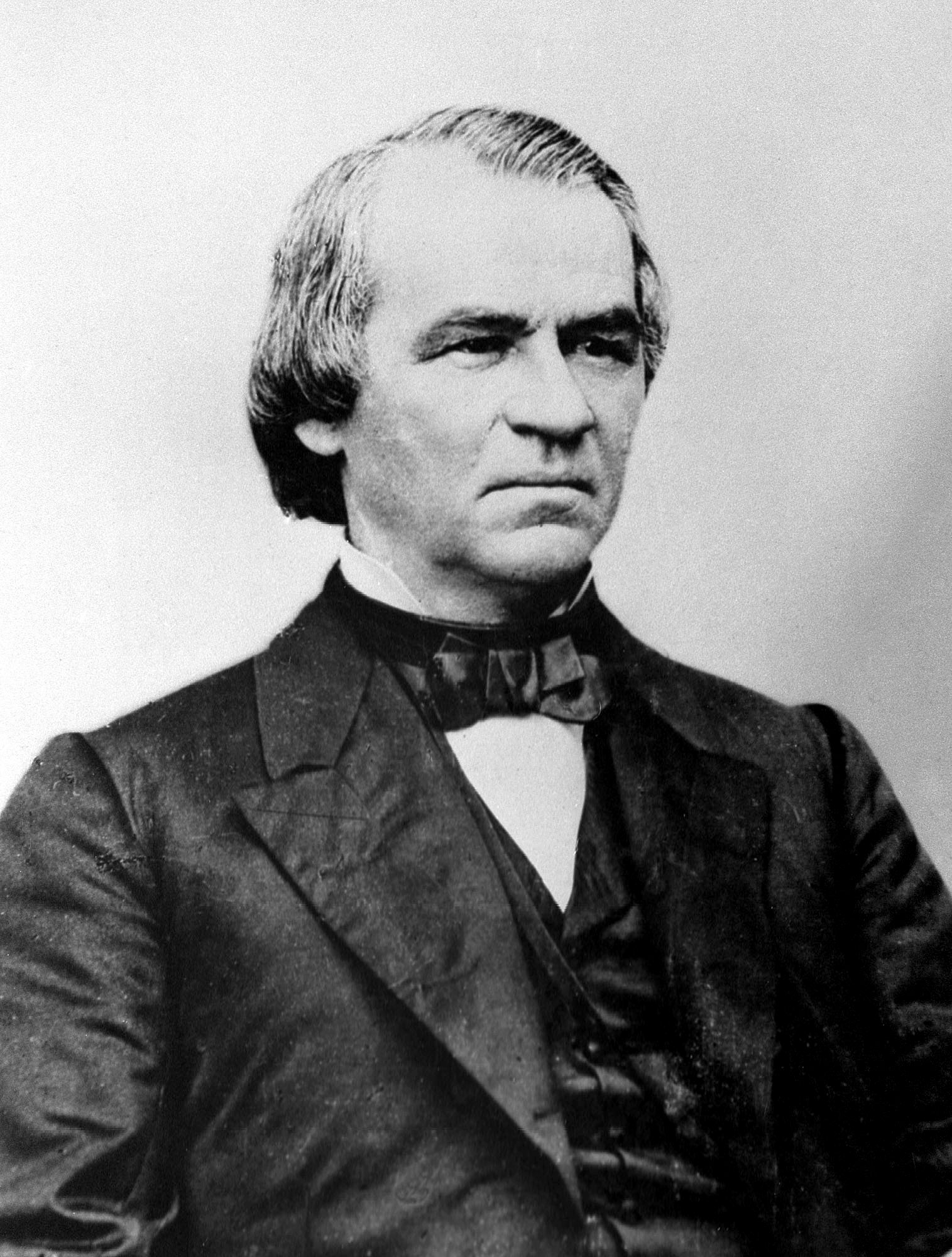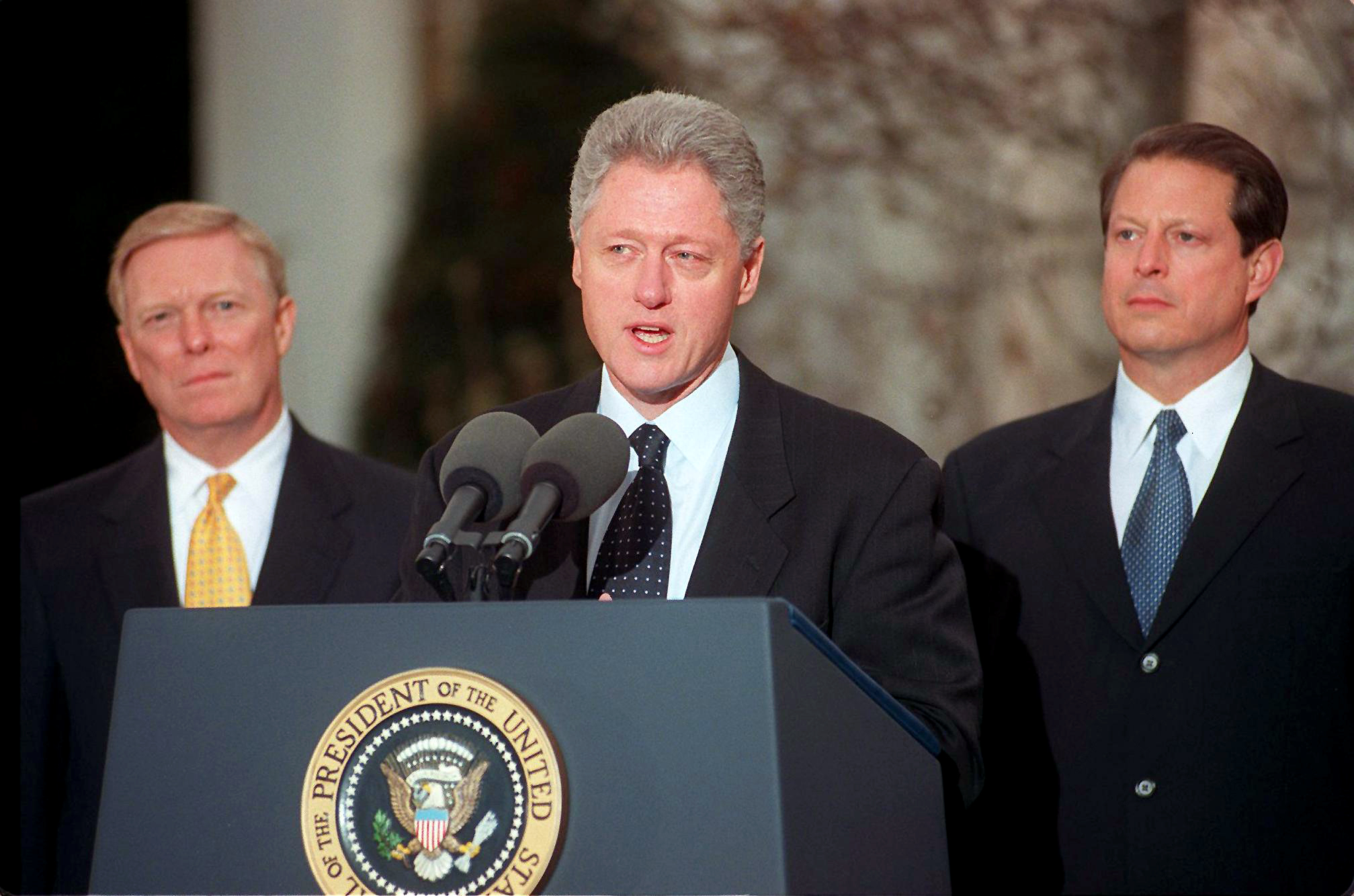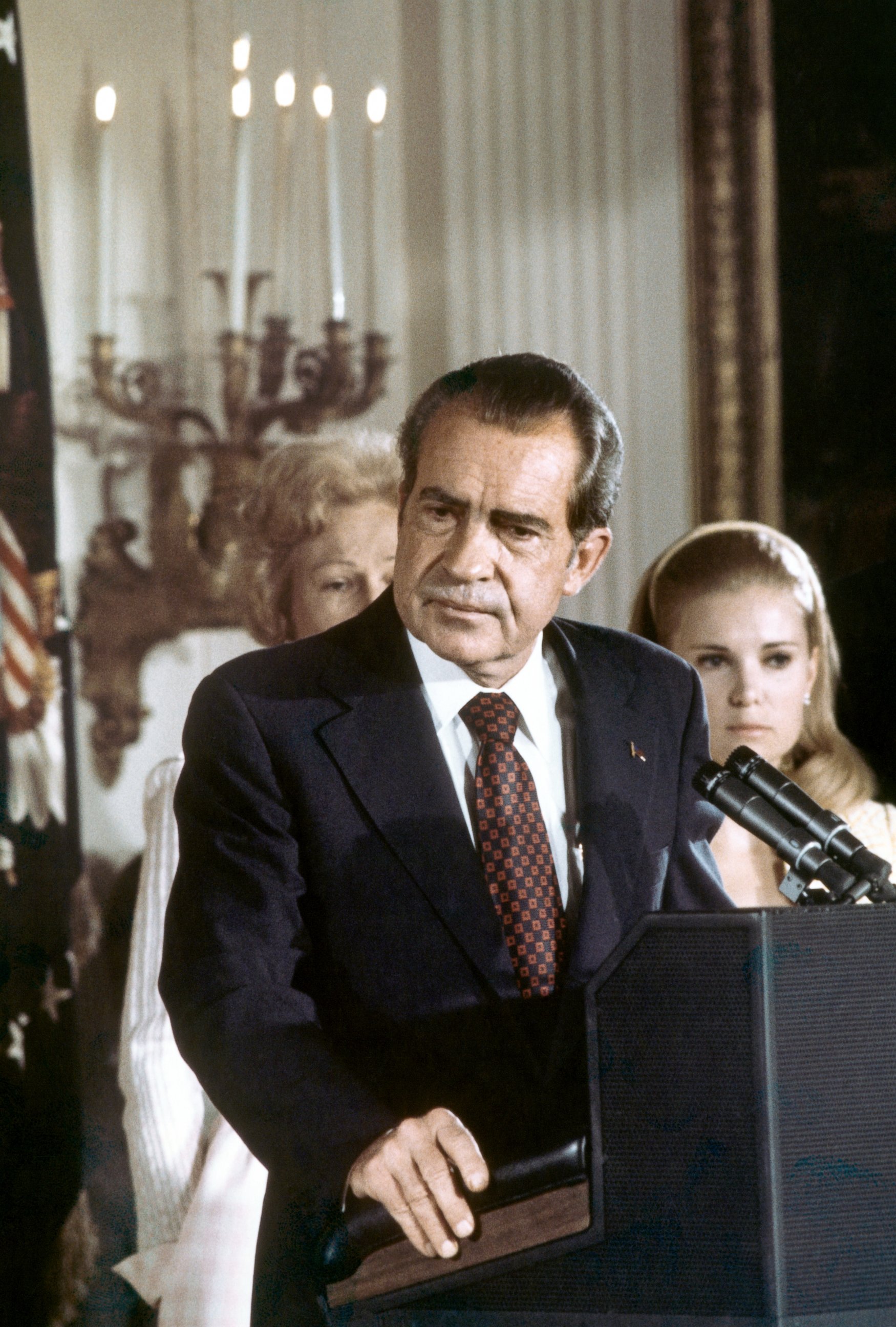Richard Nixon, Bill Clinton both faced impeachment over obstruction of justice
Just two presidents in American history faced charges of obstruction of justice.
In the wake of House Speaker Nancy Peolsi announcing that the House of Representatives is launching an official impeachment inquiry into President Donald Trump, there are mounting questions about Trump’s actions and whether they amount to an impeachable offense.
Impeachment is a political process, in which any civil officer, including the president and vice president, can be removed from office "for, and conviction of, treason, bribery, or other high crimes and misdemeanors," according to the Article II, Section 4 of the U.S. Constitution.
Only three presidents in American history have faced impeachment or imminent threats of impeachment, and just two were charged with obstruction of justice, a federal crime in which someone "corruptly" attempts to "influence, obstruct or impede" the "due and proper administration of the law" in a pending proceeding, as stated in 18 U.S.Code § 1505.

Andrew Johnson in 1868
President Andrew Johnson was impeached and nearly removed from office after his policies for reconstruction of the South angered radical Republicans in Congress who felt his approach was too lenient on the former Confederate states.
In February 1868, the House of Representatives voted to impeach Johnson. The House passed all 11 articles of impeachment, which, among other things, accused Johnson of illegally removing Secretary of War Edwin Stanton, an opponent of the president’s policies, from office.
The case went to trial in the Senate and the legislative body held a vote. Johnson came within a single vote of removal from office and he was acquitted of the charges in May 1968.

Bill Clinton in 1998-1999
President Bill Clinton became the second American president to be impeached and -- he too -- narrowly avoided removal from office.
On Dec. 19, 1998, the House of Representatives impeached Clinton on the grounds of perjury and obstruction of justice in connection with an extramarital affair he had with White House intern Monica Lewinsky. Two other articles of impeachment -- a second perjury charge and a charge of abuse of power -- failed to pass in the House.
Clinton initially denied he had an affair with Lewinsky. But on Aug. 17, 1998, Clinton became the first sitting president to testify before a grand jury and, after questioning, he admitted on national television that he had an inappropriate relationship with her.
The case went to trial in the Senate, which ultimately voted on Feb. 12, 1999, to acquit the president of the charges. Clinton remained in office.

Close Call
President Richard Nixon stepped down halfway through his second term to avoid impeachment amid the Watergate scandal.
ABC News' Kate Shaw and Elizabeth Thomas contributed to this report.






